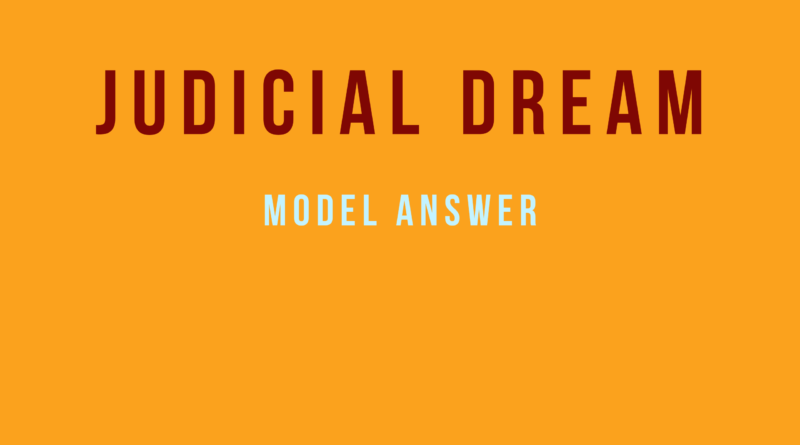PERPETUAL INJUNCTION
Discuss the principles and restrictions regarding the grant of perpetual injunction.
Section 38 of the Specific Relief Act, 1963, deals with the provisions of Perpetual injunction. The main aim of this section is to protect the rights of an aggrieved person and according to this section, if an obligation exists in favour of an aggrieved person and another person tries to breach that obligation then just to prevent the breach of obligation, a court can grant perpetual injunction.
Here the term “obligation” means every duty that is enforceable by law i.e., legal obligation and if any person tries to breach this obligation, then the aggrieved person can claim perpetual injunction.
In the leading case of Kuldeep Singh vs. Subhash Chnadra Jain, the Hon’ble court held that this section not only includes contractual obligation but also includes obligation the breach of which amounts to tort or civil wrong.
Moreover, according to this section, if any person infringes the right of another person with respect to his property or disturbs the peaceful enjoyment of the possession of that property, then an aggrieved person has right to file a suit and claim perpetual injunction.
If a person files a suit for perpetual injunction, then it is not mandatory for the court to grant perpetual injunction. It is discretion of the court whether to grant it or not. If the court thinks that there is a prima facia case in favour of a plaintiff and if the court will not allow the perpetual injunction, then the loss which would be caused to the plaintiff will not be ascertained by the court or the monetary compensation would not afford the adequate relief to the plaintiff, then in such a case, the court will grant perpetual injunction.
The main purpose of granting perpetual injunction is to protect the rights of an aggrieved person and to prevent the multiplicity of judicial proceedings.
In the leading case of Ranjit Chandra vs. U.O.I., the Hon’ble court held that it is a discretion of court whether to grant perpetual injunction or not and if the obligation arises from a contract which cannot be specifically performed, then in such a case, court can refuse to allow the perpetual injunction.



